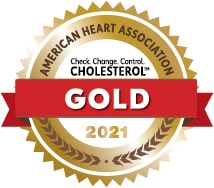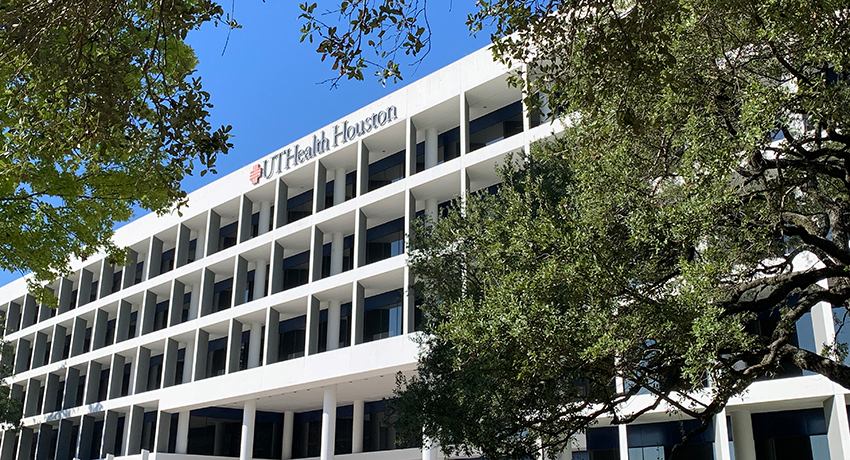February 16, 2022
Varicose or spider veins can cause discomfort and affect your confidence. Sign up for our upcoming no-cost screenings to speak with an expert about this condition.
UT Physicians provides primary and specialty care for patients of all ages. We have over 2,000 health care providers with expertise in more than 80 specialties and subspecialties. From routine visits to advanced services, our physicians practice at more than 100 locations across the Greater Houston area. Find the care you need and schedule an appointment with us today.
If you are a patient of UT Physicians, the information below outlines our process and facilities to facilitate a relaxed and successful experience.
With more than 2,000 clinicians certified in more than 80 medical specialties and subspecialties, UT Physicians provides multispecialty care for the entire family.


In 2021, the American Heart Association has recognized this clinic for 70% or greater high cholesterol control among its adult patients.
UT Physicians Heart & Vascular has the most comprehensive range of advanced cardiovascular diagnostic and imaging modalities available in the United States. We have our internationally recognized cardiovascular specialists interpret these studies, so that your results are analyzed and a treatment plan developed to optimize your cardiovascular health and well being.
We offer the following imaging and diagnostic technologies:
Electrocardiogram (EKG): An electrocardiogram measures the electrical activity generated by the heart.
Echocardiogram: An echocardiogram uses ultrasound, or sound waves, to create detailed images of the heart muscle, and valves. These images can also measure the heart’s blood flow and function.
Stress Echocardiography: A stress echocardiogram uses ultrasound to see how the heart works under exercise conditions.
Nuclear Stress Testing and Nuclear Imaging: A nuclear stress test uses an injected radioactive material to look at the blood flow through the heart during exercise conditions.
Positron Emission Tomography (PET): At the Weatherhead PET Center, we provide advanced cardiac PET and cardiac PET-CT. PET-CT is like a nuclear stress test, but can detect smaller changes in blood flow and changes to heart muscle cell function.
Heart Rhythms Monitors: These monitors, called Holter or event recorders, are small iPod-size devices connected to leads that are placed on the chest to record heart rhythms.
Optimization of Pacemakers and Defibrillators (ICD): We can optimize any pacemaker or defibrillator using our non-invasive programming devices. We now also offer “pacemaker tune ups” using ultrasound, so that the pacemaker makes the heart pump more efficiently.
Vascular Ultrasound: Vascular ultrasound uses sound waves to create detailed images of the carotid arteries, renal arteries and limb arteries. These images can also be used to measure the blood flow through the artery and detect blockages.
Vascular screening: Our range of vascular screening modalities include carotid artery screening, peripheral artery screening, abdominal aortic aneurysm screening, and early coronary artery disease imaging.
Non-Invasive Vascular Testing: This test measures changes in blood pressure at different levels in the arms and legs to non-invasively detect blockages.
Cardiovascular Magnetic Resonance Imaging (CMR): This test uses magnetic fields (without radiation) to create detailed images of the heart and vascular system.
Cardiovascular Computer Tomography (CT 64 slice): This test takes and puts together multiple X-rays using computers to create detailed images of the heart and vascular system.
Laboratory Tests: The full range of laboratory tests are available.
*Please note there is a freeway closure at the intersection of I-69 S (southbound ramp) at the 610 West Loop (southbound). Drivers should continue on the I-69 southbound main lanes to the Fountain View Drive exit ramp. Please U-turn at Fountain View and continue onto the first entrance ramp to the I-69 northbound main lanes, then take the I-69 northbound connector ramp to the I-610 southbound main lanes.
The Bellaire Station parking garage is located on N 1st St. Free garage parking is available through the north or south entrances.
The Heart & Vascular Surgery clinic is more easily accessible by parking at the south garage entrance.
UT Physicians recommends parking at the rooftop level of the garage to walk straight into the clinic. For inclement weather, ground floor (covered) parking is available. Once inside the main building, take the elevators up to the second floor of the clinic.
